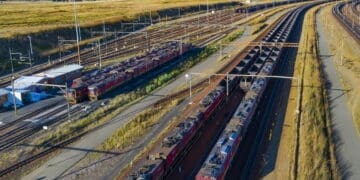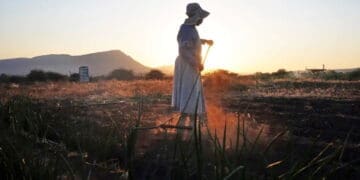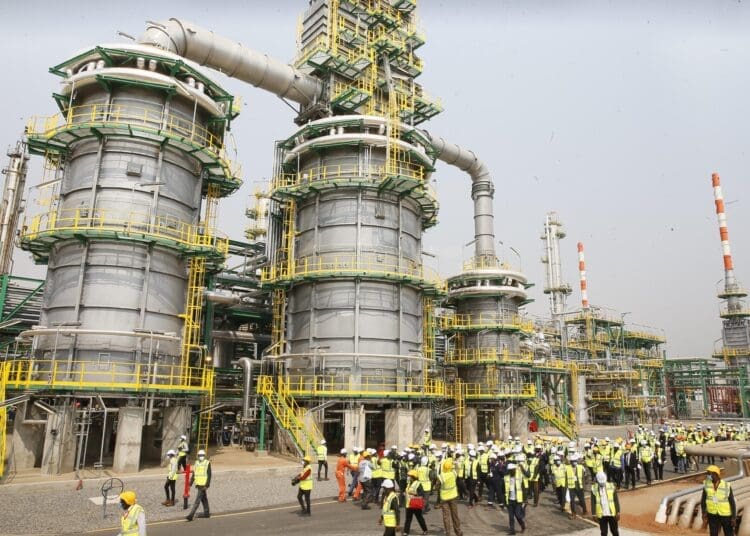During Youth Month, a new conversation took shape, one that challenges the long-standing exclusion of young entrepreneurs from capital-heavy industries like oil and gas.
With the country facing persistent youth unemployment and a small business sector under strain, questions are being asked about who gets to participate in the economy of the future.
That question was at the centre of a recent webinar titled Opening Access to Market, Capital and Trade in South Africa’s Oil and Gas Sector.
The event formed part of a build-up to the upcoming Youth in Trade Theory of Change Workshop. It was hosted by the South African Youth Trade Association in partnership with the Department of Small Business Development and the South African Oil and Gas Alliance.
The discussion explored the real opportunities and constraints facing young entrepreneurs in a sector often regarded as too complex, too regulated and too expensive for SMEs to meaningfully enter.
Programme director Sam Ding opened the session by describing start-ups and MSMEs as the heartbeat of innovation. However, in industries like oil and gas, that innovation was often stifled by high barriers to entry.
“This webinar is your gateway to understanding how to scale in one of the world’s most dynamic sectors,” Ding said.
He urged young business owners to explore all points of the value chain, upstream, midstream and downstream.
Upstream activities include exploration and drilling. Here, SMEs could provide data services, surveying and even safety training. Midstream operations involve transport and storage, which opens the door to logistics providers, compliance experts and digital tracking solutions.
Downstream, where products are refined and sold, opportunities exist for packaging, distribution, catering and waste management.
But across the board, access to finance and market information remains a major hurdle.
South African Oil and Gas Alliance CEO Adrian Strydom said that success in the sector must be measured differently.
He cited Guyana’s President Irfaan Ali, who recently said that oil and gas progress should be evaluated by how many people were trained and developed—not just how much oil is pumped.
“If we fail our young people, we fail. Period. The real value of this sector lies in human capital,” Strydom said.
That value was not being realised, according to SA Youth Trade Alliance (SAYTA) president Loyolo Dwesi, who said the current generation of young people was not fighting for education like the generation of 1976.
“We are fighting to participate in the economy,” he said.
Dwesi argued for a youth-centric model of industrial development and highlighted the need for demographic data that tracked youth participation in oil and gas.
“Ask how many young people are benefiting from the sector and you won’t get a clear answer,” he said.
SAYTA is responding by launching a Youth School of Export and formalising its partnership with the International Trade Institution of South Africa.
Dwesi also emphasised the need for targeted data collection and trade advocacy, particularly in support of informal enterprises.
Small Business Development Deputy Minister Jane Sithole said the time for implementation has come.
“People are tired of speeches that lead nowhere. Our youth are standing up and ready. What they need now is an enabling environment, not another round of promises,” she said.
Sithole added that the National Development Plan projected the creation of 11 million jobs by 2030, with at least nine million expected to come from small enterprises.
“That is not going to happen unless we create space for young SMEs to thrive in every sector, including oil and gas,” she stated.
The webinar also highlighted how many youth-owned businesses remained unaware of the practical entry points available in the oil and gas value chain. For example, a small logistics company could offer transport services in the midstream segment, while a digital marketing agency could assist with downstream branding and compliance.
These businesses may not require direct contact with fossil fuel products, but still play a critical role in the sector’s supply chain.
The Youth in Trade Theory of Change initiative aims to map out a long-term plan for integrating young entrepreneurs into key sectors of the economy, including those linked to the African Continental Free Trade Area.
SAYTA and its partners believe that by building a pipeline of informed, skilled and funded youth enterprises, South Africa can achieve not just economic recovery, but inclusive industrial growth.
































































